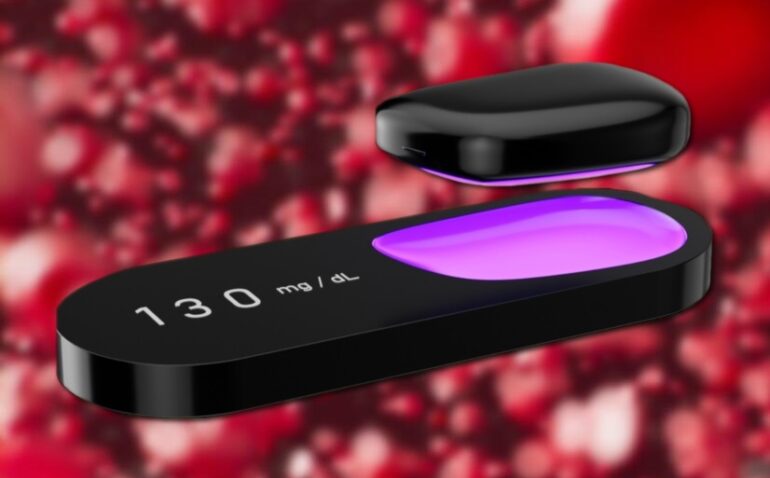TL;DR:
- Know Labs focuses on advancing its noninvasive glucose sensor technology for FDA review.
- Recent studies show significant improvements in the system’s glucose-tracking accuracy.
- The sensor relies on Body-Radio Frequency Identification (Bio-RFID) sensors and LightGBM AI.
- The mean absolute relative difference (MARD) for the sensor’s accuracy has reduced to just under 11.3%.
- Know Labs plans to collect more real-world glucose readings to further refine the AI.
Main AI News:
In the ever-evolving landscape of health technology, one company stands out as a trailblazer in glucose monitoring innovation – Know Labs. Throughout 2023, their unwavering commitment has centered around two key areas, both strategically aimed at advancing their noninvasive glucose sensor technology toward an eagerly anticipated FDA review. With a remarkable physical prototype introduced in June and a string of compelling studies showcasing groundbreaking improvements in glucose tracking, Know Labs is poised to revolutionize the field of glucose monitoring.
Achieving a Significant Milestone: Unveiling the Prototype
A groundbreaking moment arrived in June when Know Labs proudly presented the world with the first-ever physical prototype encompassing their state-of-the-art noninvasive glucose sensor technology. This major achievement marks a significant leap towards accurate and user-friendly glucose monitoring solutions.
Progressive Advancements: Elevating Glucose-Tracking Capabilities
Over the past months, Know Labs has consistently released a series of captivating studies, demonstrating dramatic strides in the system’s glucose-tracking capabilities. The reported enhancements have garnered widespread attention, as the sensor’s accuracy has nearly doubled since the initial proof-of-concept study released in February.
The Heart of Innovation: Bio-RFID Sensors and LightGBM AI
At the core of Know Labs’ innovation lies their revolutionary Bio-RFID sensors, an ingenious technology that transmits radio waves through the skin to analyze molecular signatures in the blood. This wealth of data is then meticulously processed by their advanced Light Gradient-Boosting Machine (LightGBM) artificial intelligence model, enabling precise and noninvasive calculations of glucose levels.
Benchmarking Accuracy: Mean Absolute Relative Difference (MARD)
Accuracy is the defining feature of any glucose monitor, and Know Labs measures its sensor’s performance using the mean absolute relative difference (MARD). This crucial metric assesses the gap between the device’s blood sugar readings and those obtained from a reference device, with lower MARD values indicating superior accuracy. As the industry evolves, the MARD ceiling for accurate Continuous Glucose Monitoring (CGM) systems has lowered to around 10%, with leading manufacturers like Dexcom and Abbott reaching impressive MARD levels approaching 8%.
Exceeding Expectations: Surpassing Accuracy Targets
Know Labs has displayed an unwavering commitment to accuracy, consistently surpassing expectations with its noninvasive glucose sensor. In their latest study results, unveiled this week, the company achieved a remarkable feat – their technology can now predict blood glucose levels with a MARD of just under 11.3% compared to readings from a Dexcom G6 CGM. This represents a substantial improvement from the nearly 20% difference reported in February and an even greater advancement from the 12.9% MARD calculated in a late May study.
Driven by Research and Scientific Advisory Board
In their pursuit of excellence, Know Labs ensures a rigorous approach to research and development. While the new research is in preprint and awaits formal peer review, it has already undergone thorough scrutiny by the company’s esteemed scientific advisory board, comprising three renowned experts, established in March.
Leveraging Data for Enhanced Precision
The significant accuracy improvement can be attributed to innovative data preprocessing techniques utilized in the system’s analysis, alongside the substantial increase in user data fed into the system – over double the data compared to previous studies. In their latest research, Know Labs’ researchers trained the LightGBM machine learning model using a vast dataset of more than 3,300 reference device values, meticulously collected over 330 hours from 13 participants. This contrasts with the May study, which relied on approximately 1,500 observations from only five individuals.
Advancing Toward the Future: Progress and Refinement
Know Labs sets its sights firmly on the future, dedicating the remainder of the year to gathering even more real-world glucose readings, honing its LightGBM AI to unprecedented levels. An invaluable trove of data will be sourced from Know Labs’ Generation 1 prototype device, subject to rigorous daily testing and poised to generate tens of billions of data observations, fueling the pursuit of unrivaled precision in glucose monitoring.
Conclusion:
Know Labs’ AI-powered advancements in noninvasive glucose monitoring technology position them at the forefront of the market. With remarkable improvements in accuracy and continuous research efforts, they are poised to revolutionize glucose monitoring solutions, opening new possibilities for the industry and benefiting patients worldwide. Investors and stakeholders should closely monitor Know Labs’ developments as they hold significant potential to disrupt the glucose monitoring market and redefine the standards for accuracy and user experience.

